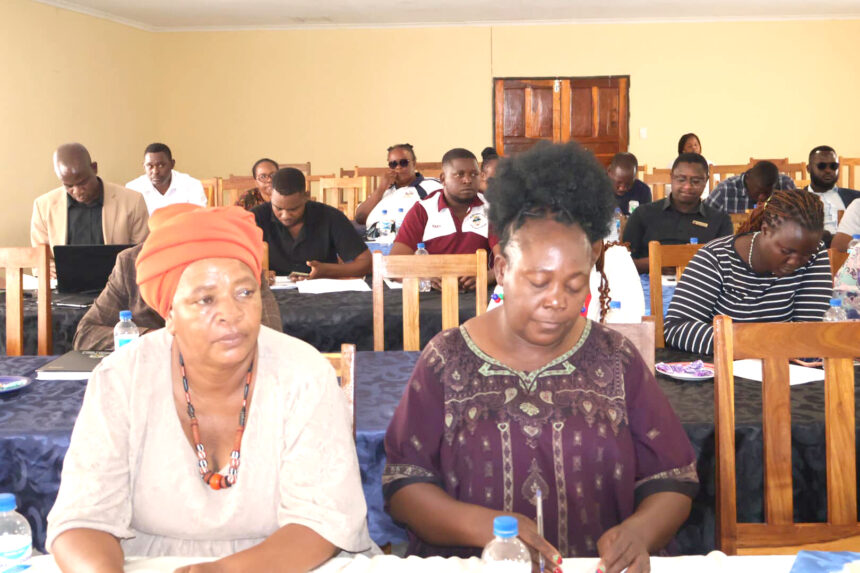Paulina Ndalikokule
NKURENKURU – Kavango West only reported four cases, of which three were finalised after investigations, while one is still pending, since the establishment of the region. Meanwhile the Anti-Corruption Commission of Namibia was created in 2006 and Kavango West 11 years ago.
This was revealed by the ACC senior investigation officer Alicia Mushaukwa during a stakeholders regional forum engagement meeting on National Anti-Corruption Strategy and Action Plan (NACSAP) in Nkurenkuru on Wednesday.
Mushaukwa said people are not forthcoming to report corruption cases and when they do, most become discouraged to testify as witnesses, due to the delays in holding trials.
“We also do not have special courts to speed up finalising our cases and we also experience instances where whistleblowers do not provide all the required information or contact details to help with our preliminary investigations of the corruption cases they report to us,” she said.
Mushaukwa added that the low number of cases reported in the region could be attributed to the fact that over the years the nearest ACC office was in Otjiwarongo, which also catered for Kunene, Zambezi and Kavango East.
Mushaukwa said with the newly established ACC office in Rundu, members of the public can now report more cases of corruption there. Kavango West governor Sirrka Ausiku who is also the chairperson of the NACSAP Kavango West, said it is worrisome and a concern that less corruption activities are being reported in the region. “As we are going to hear the report from the secretariat how our region is doing, it will be worrisome if there is an increase of corruption cases reported to ACC, in the same vein it will also be a concern if there are no cases reported because most of us who follow social media, hear there are cases of corruption taking place especially in our institutions,” Ausiku said.
She encouraged forum stakeholders to strengthen their collective efforts to prevent corruption in the region and urged institutions to come up with accountability reports they will present at next year’s regional forum.
Modestus Kupembona, a participant said more engagement meetings are required to educate the community as many of them are still not well informed about how to go about reporting corruption activities. “Awareness programmes are not there for people to know even how many cases the regional council has reported or acted on corruption for example,” Kupembona said. He said it is unrealistic and disappointing that the region recorded such a low number of corruption cases. ACC executive director, Tylvas Shilongo, in a speech read on his behalf by Paulus Lyambezi, the chief public education and corruption prevention officer at ACC’s Rundu office said the gathering was significant in the ongoing fight against corruption. “As industry players, supervisors, and leaders in the Kavango West, you have a crucial role in turning the strategy’s goals into real solutions. You are not only our first line of defence against corruption but also champions of transparency. As we implement the commitments of the NACSAP, let us be determined not to give in to corruption,” Shilongo said.
The national anti-corruption strategy outlines Namibia’s shared vision, it has eight strategic objectives and was developed in line with the United Nations Convection Against Corruption
*Paulina Ndalikokule is an information officer at MICT Kavango.



